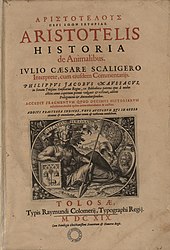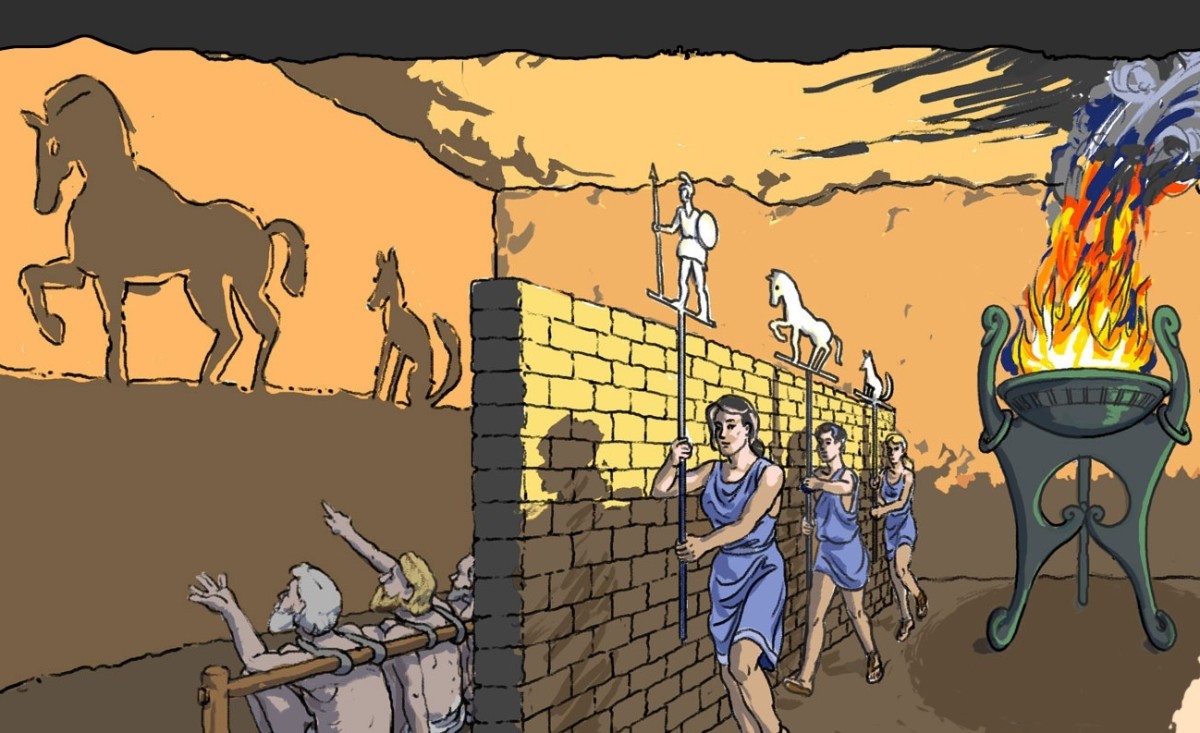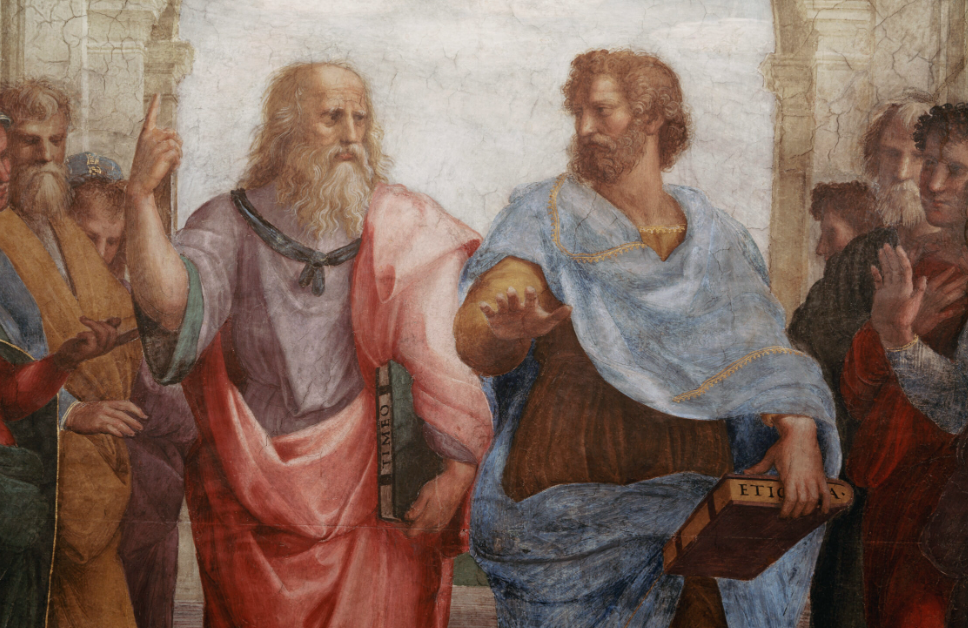Ancient philosophy has significantly shaped the intellectual landscape of the modern world, leaving its imprint on science, democracy, law, our understanding of reality and much more in our every day lives. Figures like Aristotle and Plato, among others, developed ideas that continue to resonate in contemporary thought and society and though we may not realise it, their explorations of empiricism, ontology, and political philosophy have provided foundational frameworks that influence our ways of knowing, governing, and interpreting existence. In this article I will aim to delve into the perhaps hidden influences of ancient philosophy on our modern world, highlighting how ancient wisdom continues to inform contemporary life.
Empiricism and rationalism represent two contrasting perspectives on the nature and origin of knowledge. Empiricists would assert that knowledge is best gained through sensory experience, observation, and evidence. In fact, the term “empiricism” itself comes from the Greek word “empeiria,” meaning experience. In contrast, rationalists believe that some knowledge is innate or acquired independently of sensory experience, suggesting that we possess all truths from birth and knowledge is merely a recollection of these inherent truths, rediscovered through reason alone.
Aristotle is firmly in the empiricist camp, famously asserting that “all knowledge begins with the senses.” He emphasized that our understanding of the world is grounded in what we can observe, perceive, and learn through our sensory experiences; this perspective laid the groundwork for the scientific method, which relies on systematic observation, experimentation, and the collection of data to formulate and test hypotheses. Aristotle’s dedication to empiricism is exemplified in his pioneering work in biology. He is the first person known to have conducted an experiment tracing the development of a chicken embryo, meticulously cracking open eggs at different stages of incubation to observe how the embryo formed and developed over time. This early form of embryology demonstrated his commitment to learning through direct observation and experience. Aristotle’s empirical approach also extended beyond embryology; he described a large number of marine species, insects, and other animals in great detail, often through dissections and careful study of their anatomy and behavior. His biological works, such as Historia Animalium, not only cataloged and categorised species but also explored their habitats, reproduction, and lifecycles, marking a significant advancement in the natural sciences of his time.

In the modern world, the principles of empiricism are embedded in scientific disciplines across the board, from physics and biology to psychology and social sciences. The emphasis on evidence-based approaches has not only advanced technological and medical innovations but also reshaped how we understand the natural world. The scientific method, rooted in Aristotle’s empiricism, emphasizes the importance of scepticism and the need for empirical validation of claims, a standard that drives scientific inquiry today. The legacy of Aristotelian empiricism is also evident in the rise of empirically driven disciplines such as data science, where decision-making and predictions are grounded in observed data rather than speculation. The application of these empirical methods extends beyond the natural sciences to influence economics, sociology, and even policy-making, demonstrating the widespread impact of Aristotle’s ideas on modern thought and practice.
Ancient philosophy, particularly the political theories of Plato and Aristotle, has significantly influenced modern conceptions of democracy, governance, and law. In ancient Athens, philosophers like Plato and Aristotle critically examined the nature of justice, governance, and the role of the citizen in the state, setting the stage for modern democratic ideals. Although Plato was sceptical of direct democracy, his discussions on justice and the ideal state in works like “The Republic” have spurred countless debates about the best forms of governance. For Plato, justice was a human virtue that makes a person self-consistent and good, and a social consciousness that makes a society internally harmonious and good and establishing this in democracy and law was necessary. Moreover, Plato advocated for separating political powers into the executive, legislative, and judicial branches to prevent absolute democracy and also thought that that government should benefit all citizens and social classes, and mediate between potentially conflicting interests.
In modern democracy, the separation of powers into distinct branches—executive, legislative, and judicial—is a direct reflection of these ancient concepts. This structure is designed to create a system of checks and balances, ensuring that no single branch can dominate or wield unchecked power. For example, in the United States, the Constitution clearly delineates the roles and responsibilities of each branch of government, mirroring Plato’s vision of divided power to maintain balance and prevent tyranny. The legislative branch makes laws, the executive branch enforces them, and the judicial branch interprets them, creating a dynamic interplay that safeguards against the concentration of power. This structure reflects Plato’s belief that a balanced and just government requires a clear separation of functions and authorities, thus promoting fairness and preventing the rise of absolute rule.
Aristotle’s political philosophy is perhaps more significant- particularly his ideas about the rule of law and mixed government which carved the foundation of many modern political systems. Aristotle believed that laws should be rational and just, serving the common good rather than the interests of a select few. His classification of different government forms—monarchy, aristocracy, and polity—along with their corrupt counterparts—tyranny, oligarchy, and democracy—continues to inform political science and the analysis of governments. This idea is embodied in representative democracies, where elected officials are accountable to the people and must govern in a way that reflects the diverse interests of society. An example of this can be seen in the concept of bicameral legislatures (literally meaning ‘two-Chamber’), such as the United States Congress, which consists of the House of Representatives and the Senate. This structure ensures that both the population at large and individual states or regions have representation in the legislative process, balancing popular and regional interests in a way that echoes Aristotle’s advocacy for governance that mediates between conflicting interests.
Additionally, Aristotle’s emphasis on the rule of law, where laws govern rather than individuals, is a cornerstone of modern legal systems. This principle ensures that laws are applied uniformly and fairly, providing a predictable and stable framework for society. In practice, this is seen in the legal concept of judicial review, where courts have the power to strike down laws that violate the constitution, ensuring that legislative and executive actions remain within the bounds of established law. Once again, we see how this mechanism of oversight aligns with Aristotle’s belief that governance should be conducted according to reason and justice, rather than the arbitrary will of rulers.
Furthermore, the ancient focus on civic responsibility and participation is mirrored in modern democratic practices. Both Plato and Aristotle stressed the importance of an engaged and virtuous citizenry as the bedrock of a healthy state. This is reflected in contemporary efforts to encourage voter participation, civic education, and public discourse as essential components of democratic life. For instance, in many democracies, public campaigns and education programs aim to increase voter turnout and ensure that citizens are informed about their rights and responsibilities, echoing the ancient belief that active participation is crucial for the functioning of a just society.
The influence of these ancient ideas can be seen in the development of constitutional democracies, where the rule of law, checks and balances, and the protection of individual rights are paramount. Concepts such as equality before the law, civic responsibility, and the importance of a well-informed citizenry trace their origins back to the philosophical debates of ancient Greece. Modern legal systems also echo Aristotelian principles, particularly the idea that laws should reflect ethical standards and serve the welfare of the community.

Moving back to Plato, his Allegory of the Cave, considered one of the most famous metaphors in Western philosophy, explores the nature of reality, perception, and enlightenment. In the allegory, prisoners are chained inside a cave, seeing only shadows cast on a wall by objects behind them. These shadows represent their perceived reality, but when a prisoner escapes and sees the outside world, he realizes that the shadows are mere illusions and that a greater, truer reality exists beyond his previous understanding. For Plato, this greater, truer reality is the reality of the Forms: In a relatively short summary, Plato argued that everything we perceive is just a mimic of its perfect Form. This theory of the Form suggests that everything has an archtype, a perfect, immutable, and everlasting Form that lies beyond the illusion and particular we perceive. He believed it important to understand the Forms because he thought if we focus on the ideal version of something we can strive to make the imperfect better- therefore, in order to achieve this, one must delve into philosophy to reach the fourth stage of cognition and achieve true knowledge of reality. Though this may seem far fetched and absurd to some of us now, this allegory addresses fundamental ontological questions about the nature of reality and our ability to perceive truth. It suggests that what we consider to be real may be just a shadow of the actual truth, hidden from our immediate senses. The allegory has been interpreted as a commentary on human ignorance and the transformative journey to enlightenment, emphasizing the importance of philosophical inquiry in seeking deeper truths. But, how do we see this in modern day society?
Well, to give one familiar example, in modern culture, the Allegory of the Cave has been reimagined in various forms, most notably in the film “The Matrix”; In this movie, humans live in a simulated reality created by artificial intelligence, unaware that their perceived world is a digital illusion. The protagonist, Neo, represents the escaped prisoner who comes to understand the true nature of his existence. The film echoes Plato’s themes of perception, reality, and the quest for truth, illustrating how ancient philosophical concepts continue to resonate in contemporary narratives. The allegory’s influence extends beyond film into broader discussions about virtual reality, artificial intelligence, and the philosophy of mind. It raises pertinent questions about how technology might alter our perceptions of reality and the implications of living in a world where the boundaries between the real and the artificial are increasingly blurred. Philosophers and scientists alike grapple with these ontological dilemmas. An example of ontological questioning in modern society is the ongoing debate surrounding the nature of consciousness and artificial intelligence. As AI technology advances, questions arise about whether a machine could ever truly possess consciousness or subjective experience, challenging our understanding of what it means to be “real” or “alive”. This debate touches on fundamental ontological issues, such as whether our consciousness is merely a biological phenomenon or if it could exist in non-biological entities. These discussions force us to reconsider the nature of existence and what it means to be human in an age where technology increasingly mimics the complexity of life and mind but also reflects the ongoing relevance of Plato’s insights.
In conclusion, the influence of ancient philosophy is deeply embedded in the modern world, shaping our scientific pursuits, political systems, and conceptualizations of reality. The legacies of Aristotle, Plato, and other ancient thinkers continue to guide our quest for knowledge, justice, and understanding, demonstrating the timeless relevance of their ideas. As we navigate the complexities of the modern age, the wisdom of ancient philosophy remains a crucial touchstone and if we take a closer look, it reminds us of the enduring power of thoughtful inquiry and the search for truth.

‘The Story Left Untold’ Overview – Izzy Lyonswhite
The story that was left untold– a poetic testimony in 4 voices In honour of April being sexual assault awareness month,[…]

The Gender Pay Disparity in Sports
The chasm between male and female athletes’ remuneration is a multifaceted issue. It is heavily influenced by societal stereotypes,[…]

Analysis on Natural Law
Critically Assess the View that Natural Law Allows for Clear Moral Decision-Making Natural Law, as formulated by Thomas Aquinas[…]

